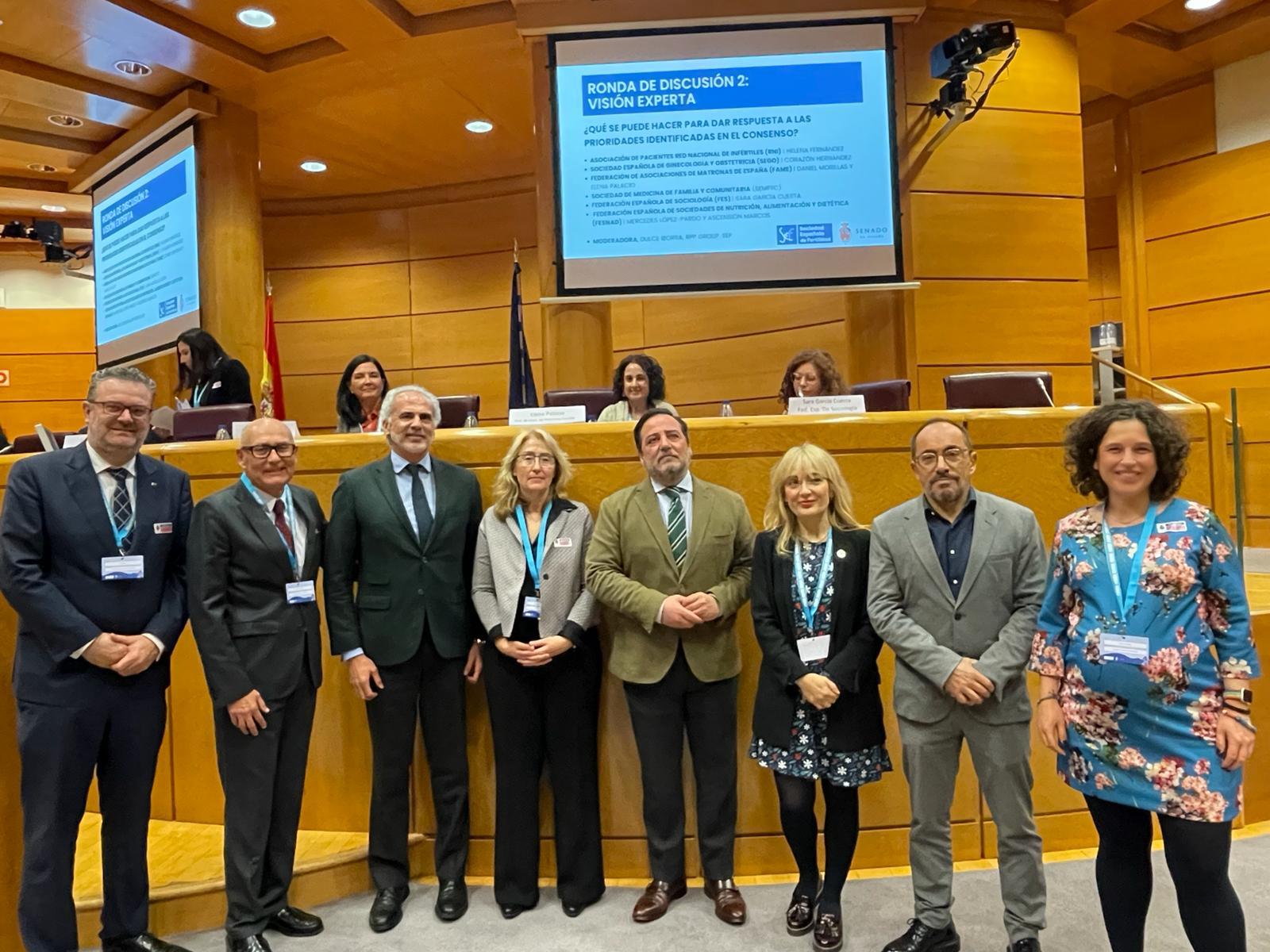

The panel of experts reaches a consensus on the birth rate and reproductive health in Spain and develops a roadmap to combat infertility.

4 March, 2024
The low birth rates registered over the last few years are due to a variety of socio-economic, cultural, educational and health-related phenomena. These very causes have also increased the use of reproductive techniques to remedy the widespread disease of infertility. As a result, doctors, sociologists, midwives and patients have come together to address the issue and to find a solution to this situation.
The Spanish Fertility Society (SEF) in conjunction with the Spanish Society of Gynaecology (SEGO), the Spanish Society of Family and Community Medicine (SEMFYC), the patient associations of National Infertility Network (RNI) and ASPROÍN, and the Spanish federations of Sociology (FES), Nutrition (FESNAD) and Midwifery (FAME), have reached a consensus on Spain’s birth rate and reproductive health. Their proposal is to develop a roadmap to improve Spanish fertility and fecundity.
As this expert panel reports in the prologue of its guide entitled Spanish Consensus on Birth and Reproductive Health, "despite the ever-increasing infertility problems which affect between 15 and 20% of the Spanish population, there is still a great deal of ignorance, stigma and a lack of media and political attention. This document has been prepared by the leading voices in the field of reproduction and reproductive health in Spain. It analyses the underlying factors that have led us to the current situation. It also outlines a roadmap across the different reproductive stages of Spanish citizens, including recommendations for measures to be taken by the general public and public decision-makers".
Prevention is a matter of informing society and educating it about health issues
"The purpose of this publication is to boost the available information and education regarding reproductive health. We want to focus on preventing infertility and sterility and treating them in time. In addition, our aim is to articulate an efficient system that addresses the socio-health challenges posed by reproduction and assisted human reproduction (AHR) in our country," explains Dr. Elisa Tena, the guide's coordinator, a member of the SEF board and a gynaecologist who specialises in reproductive medicine at IVI Zaragoza.
In addition to providing information on prevention, the experts highlight the need to promote policies to improve people's chances of having offspring at a biologically optimal time. The SEF plans to address this issue by sending this Spanish Consensus on Birth and Reproductive Health to the relevant political institutions. By informing them of the current situation, it also invites them to promote initiatives based on proposals similar to the ones included in the document. This will ultimately result in a step forward for Spain’s reproductive health.
Related courses

Online
Online Course on Immunology and Hematology
Start: 02/12/2026
Online courses
Course fee:
250 €

Online
Online course: Fundamentals in Reproductive Genetics
Start: 02/12/2026
Online courses
Course fee:
150 €

Online
Assisted Reproduction Fundamentals
Start: 06/11/2026
Online courses
Course fee:
150 €

